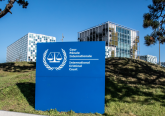In a letter published in The New Statesman, a number of Oxford academics argue that the current government position is bad policy, bad politics and a betrayal of a proud British tradition.
Dear Prime Minister and Home Secretary,
We the undersigned are dedicated to creating a socially just world. We spend our working lives supporting and promoting research, initiatives, and projects which will create a fairer and more equitable society for everyone. Among our number are many leading experts on community cohesion, asylum, refugees, migration, politics, public opinion, policy and law. We believe the Government’s current position on the European refugee crisis is misguided and requires urgent change.
Britain has a long and proud tradition of providing sanctuary to those in need. Thousands of European Jews were taken in by the governments of the 1930s and 1940s, saved from the horrors of fascism and Nazi extermination. Britain was one of the founding signatories of the post-war Geneva Convention on refugees in 1951. Tens of thousands of Ugandan Asians were saved from the tyranny of Idi Amin in the 1970s, while in the 1980s we accepted thousands of boat people fleeing Vietnam. More recently, we have given sanctuary to thousands of refugees fleeing conflicts in Africa, the Middle East and elsewhere in the world.
You do not need to look far to find the beneficiaries of this proud tradition. Some sit with you on the benches of the House of Commons. Priti Patel, your employment minister, whose parents fled the tyranny of Idi Amin’s Uganda. Nadeem Zahawi, the MP for Stratford-upon-Avon, who came to Britain as a nine year old child from Iraq, one of many families escaping Saddam Hussein. On the opposition benches, your former sparring partner Ed Miliband, whose father caught the last boat to Britain when the Nazis invaded Belgium. In the House of Lords, Lord Finkelstein, Lord Howard and others are the children of refugees given sanctuary by previous British governments.
Refugees and their descendents have made great contributions in all walks of British life. Some are famous on the national and international stage, others quietly contribute to British society and build lives for themselves and their families. All of them owe everything to the principled generosity of past Prime Ministers. That generosity is urgently needed again now.
You are right to point to our significant financial contribution of £900 million to help the governments of Syria, Lebanon and Turkey cope with the regional refugee crisis, a contribution you have recently increased by a further £100 million. Yet on the urgent issue of providing sanctuary to those who have arrived in Europe, it is clear we are failing to do our part. Germany has shown real leadership in response to this crisis, unilaterally lifting the Dublin regulation requiring refugees to be accommodated in their country of first entry, pledging to resettle up to 35,000 Syrian refugees under the Vulnerable Persons Relocation Scheme (VPRS) and leading efforts to build a co-ordinated European response. While Chancellor Merkel has responded with bold leadership, our own government response has been reluctant and insufficient. We have accepted only a tiny handful of VPRS refugees and, while your recent pledge to increase this commitment to several thousand is welcome, it is not equal to the task before us. For every refugee we currently accept, Germany accepts thirty five.
Some have argued that the British public are opposed to a larger effort to help, and that in any event such efforts are futile as we cannot hope to support all those displaced by this conflict, nor can support for refugees resolve the crisis that has led them to flee in the first place. We reject these arguments. Opinion polling shows that British voters backed the principle of asylum even before the current crisis – in a May poll by YouGov supporters outnumbered opponents by a margin of two to one. The terrible images of recent days can only have further reinforced this public support. The argument that we should not help anyone because we cannot help everyone is illogical and a historical betrayal. The governments of the 1930s and 1940s could not hope to help everyone displaced by global conflict, but they did what they could, saving thousands of lives. The situation is no different now. There is also no logic of refusing to help those fleeing conflict because doing so will not resolve the conflict. It is akin to leaving people in a burning building because rescuing them won’t help put out the fire. We do need to do more to resolve the conflicts in the region. But first we must help more of those put at risk by these conflicts.
The chorus of political voices calling for greater action is growing rapidly, and crosses all traditional party lines. Conservative MPs Nicola Blackwood, David Burrowes, Jonny Mercer, Tom Tugendhat, Nadeem Zahawi and Jeremy Lefroy have all called for us to do more as a nation, as have Boris Johnson, Mayor of London and Baroness Sayeeda Warsi, former party chairman. Ruth Davidson, leader of the Scottish Conservatives, has joined SNP First Minister Nicola Sturgeon and Scottish Labour leader Kezia Dugdale in calling for more to be done. The leader of the Liberal Democrats, Tim Farron, has joined these calls, as have the interim Labour Leader Harriet Harman and all the candidates in the Labour leadership contest.
The current government position is bad policy, bad politics and a betrayal of a proud British tradition. It shames us as a nation that we have done so little, and there is clear support for a change of stance from across the political spectrum. We urge you to live up to Britain’s proud humanitarian traditions, and increase Britain’s commitment to give sanctuary to those in urgent need on Europe’s borders. This crisis is a chance to challenge the growing cynicism of voters who feel that politicians are crooked and politics doesn’t matter. Show those who are pouring out their support for those in desperate need but feel powerless to help them that the British government is still a force for good in the world. We can do more. We should do more. We must do more. Prime Minister and Home Secretary, listen to the voices of your colleagues in Europe, the voices of colleagues in your parties and other parties, and the voices of your voters when we say: Let them come.
Yours sincerely
Dr Melissa Mills, Head of Department of Sociology and Nuffield Professor of Sociology, University of Oxford
Dr Liz Frazer, Head of Department of Politics and Official Fellow of New College, University of Oxford
Dr Anthony Heath FBA CBE, Director of the Centre for Social Investigation and Professor of Sociology, University of Oxford
Dr Michael Keith, Director of the Centre on Migration Policy and Society (COMPAS) and Professorial Fellow, Merton College, Oxford University
Dr Bridget Anderson, Deputy Director of COMPAS and Professor of Migration and Citizenship, University of Oxford
Dr Alan Ware, Professor of Politics and Emeritus Fellow, Worcester College, University of Oxford
Dr Robin Cohen, Emeritus Professor of Development Studies and former Director, International Migration Institute, University of Oxford
Dr Daniel Butt, Director of the Centre for the Study of Social Justice and Associate Professor in Political Theory, Oxford University
Dr Stuart White, Director of the Public Policy Unit, Associate Professor in Politics and Fellow of Jesus College, University of Oxford
Dr Francesco Billari FBA, Professor of Sociology, University of Oxford
Dr Simon Caney, Professor in Political Theory, Magdalen College, Oxford
Dr Marc Stears, Professor of Political Theory and Fellow of University College, University of Oxford
Dr Ben Gidley, Associate Professor, School of Anthropology and Museum Ethnography, University of Oxford
Dr Nic Cheeseman, Associate Professor in African Politics, University of Oxford
This letter originally appeared on the website of The New Statesman.






